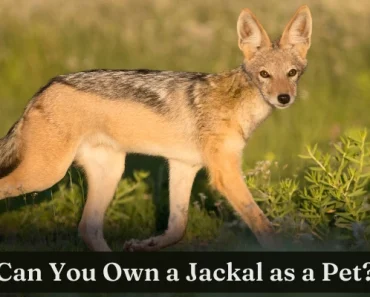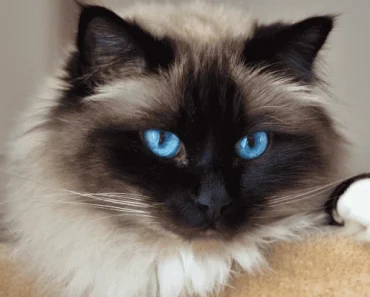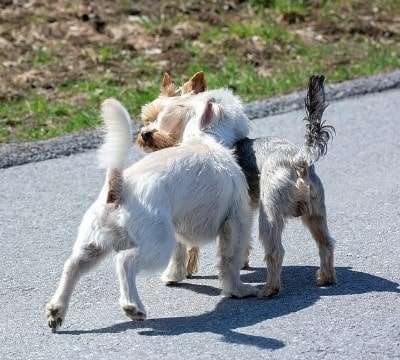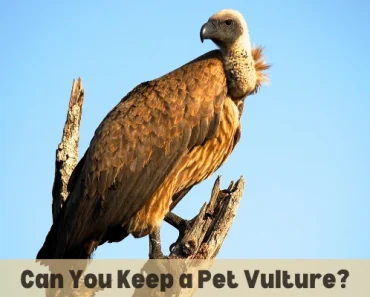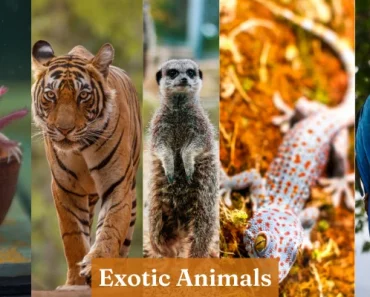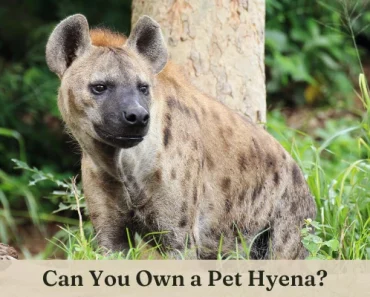Quokkas are very adorable little animals. They always have a smile on their face and are labeled as the happiest animal in the world.
I would love to have one of these little furry bundles of joy (joey) as a pet quokka!
I’ve researched a lot of exotic pet laws because I’m always curious to see what exotic animals are legal versus what exotic animals are illegal as pets.
So, can you have a pet quokka? Read on to find out if this exotic animal can be your pet!
Can You Have a Quokka as a Pet?
No matter where you live in the world, you can’t have a pet quokka. Quokkas are a protected species native to Australia and it is illegal to keep pet quokkas, per the Australian Government.
Outside of Australia, it is also illegal to have a quokka as a pet because you are not allowed to export native species from Australia without a special permit.
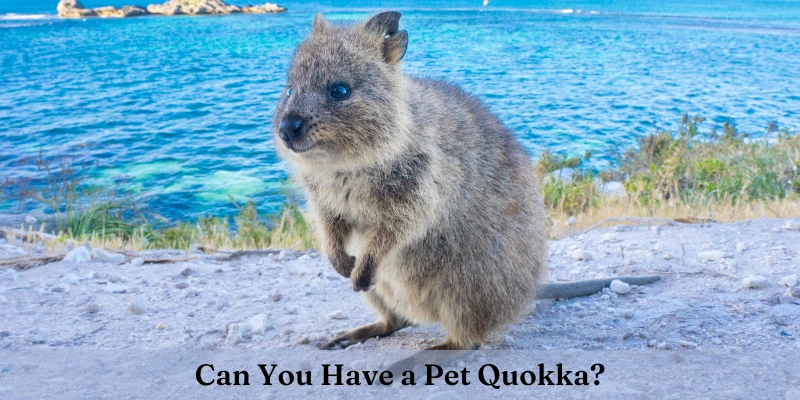
Can You Have a Pet Quokka in Australia?
No, you can’t have a quokka as a pet in Australia because the Australian Government bans wild, native species from being pets.
Since quokkas are native to Australia and only found in limited numbers (mainly on Rottnest Island), they are protected by the Australian Government, specifically the division that deals with native wildlife.
Can You Have a Pet Quokka in the United States?
No, you can’t have a pet quokka in the United States because quokkas are a protected species found in Australia, and exporting wild animals from Australia is illegal.
Per the Australian Government, no wild animals, especially vulnerable species, shall be exported for the purpose of being a pet – including pet quokkas.
Research and educational entities may be able to export a wild animal under certain circumstances, but not for personal reasons such as domestication.
Special permits are required for export and are issued mainly for education and research purposes as stated above.
You can’t even find many quokkas in zoos around the world, with only a few zoos hosting quokkas in a few places. You can see 8 quokkas at the Taronga Zoo if you visit Sydney, Australia.
If you would like to check out Australia’s International Wildlife Trade requirements and see which animals are allowed for import and export, you can click here to find out more about special permits and which animals require them.
The Quokka population is declining with no more than 15,000 left in the wild today. Quokkas are listed as “vulnerable” and decreasing on the IUCN Red List.
This makes it impossible to have a quokka as a pet since they are a very protected species and even if found in the illegal exotic pet trade, would be very expensive.
To see specific threats to quokkas, you can visit the Australian Government’s Department of Agriculture, Water and the Environment (Species Profile and Threats Database).
Would Quokkas Make Good Pets?
Of course! Pet quokkas would definitely be popular if exotic pet laws were different and you were able to domesticate a quokka as a pet. They are such loveable and social animals!
However, it is immoral to take a wild animal from its natural habitat and attempt to domesticate it for the purpose of being a pet quokka.
Very rarely does it work out that you can tame a wild animal if you haven’t handled them from a very young age or from birth.
If quokkas were domestic and bred to be pets, then I’d be the first to sign up to have a quokka as a pet.
But since their population is decreasing and they are not domestic, it is best for these little, loveable exotic animals to stay in their habitat in the wild.
With that said, they have adapted to humans very well on Rottnest Island. They even started a selfie trend in 2015 that is still a thing that is going on today on the island.
People love to take selfies with quokkas because these animals are always smiling and make the perfect selfie.
Selfies are very popular with quokkas but you always have individuals that mess it up for the rest of us.
Some people have been prosecuted for performing cruel acts on quokkas, including two French tourists that set a quokka on fire.
People also feed junk food to the quokkas on the island not realizing that quokkas get most of their hydration from plants and vegetation.
When quokkas eat human food, they don’t get the water they need or the nutrients to stay healthy. Many get sick and die.
There are many other issues causing the decline of the quokka population, including the following:
- Fires have raged on the island and other places causing a decrease in the habitat for quokkas, directly affecting the quokka population.
- Humans have caused a reduction in the quokka population due to environmental processes that reduce the quokka habitat due to the increase in popularity of Rottnest Island (where the main population of quokkas resides) because the quokka selfie craze started in 2015.
- Animals that aren’t natural predators of quokkas have been released in quokka territories where quokkas once thrived, but now these animals are decreasing more and more due to dogs, cats, foxes, and other animals hunting them.
There are many websites dedicated to quokkas and they are trying to help spread awareness to save these little cuties from becoming extinct.
Hopefully, the population can bounce back and these cute little animals don’t go extinct.
Just for fun, let’s pretend that quokkas weren’t vulnerable and were domesticated. Would a pet quokka be a great idea if it wasn’t illegal to have one as a pet?
Let’s play into that scenario and discuss 5 reasons quokkas WOULD make good pets and 5 reasons quokkas WOULDN’T make good pets.
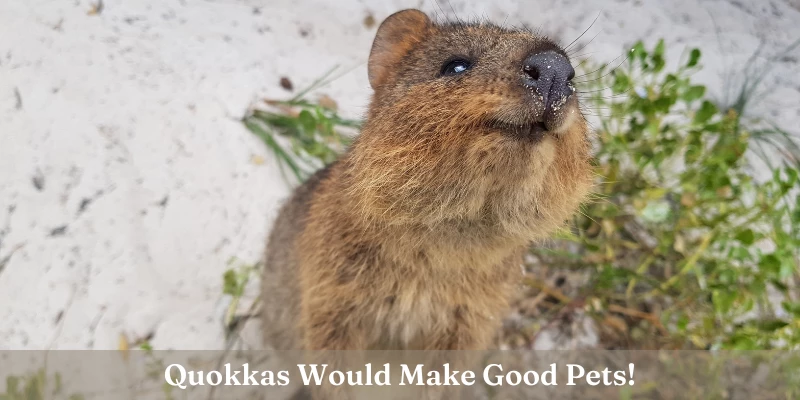
5 Reasons Quokkas WOULD Make Good Pets
Below are 5 reasons why pet quokkas would be good and why owning a quokka as a pet would be a great idea!
1. Quokkas Are Intelligent and Social
Quokkas are very intelligent and social animals. Although there’s no way to test this theory, pet quokkas seem as though they would be a great addition to a family environment having no more issues than your usual domestic pet.
Although it would be best to have two as pets since they are very social and are naturally found in groups of 10 or more.
2. Quokkas Are Cuties
Quokkas are known for their selfies because they are very cute animals. Everybody loves cute animals! Of course, all of us would want a pet quokka because they are so loveable and adorable.
3. Quokkas Are Not Aggressive
Quokkas are small, do not appear to be aggressive, and are curious animals. They walk right up to humans with little fear, unless you startle them or make sudden movements.
4. Quokkas Are Very Friendly
Since they are non-aggressive and curious animals, they tend to be very friendly when interacting with humans.
This is in hopes of getting human food most of the time, but this is a great characteristic to look for in a pet.
5. Quokkas Are Adaptable
Quokkas are known to be more active at night. However, when introduced to humans, they seem to have adapted well and many of them have changed their sleep and activity patterns to reflect that of humans.
Quokkas have changed their behavior because humans have introduced them to new food sources. They seem to be able to adapt well enough when presented with habitat changes.
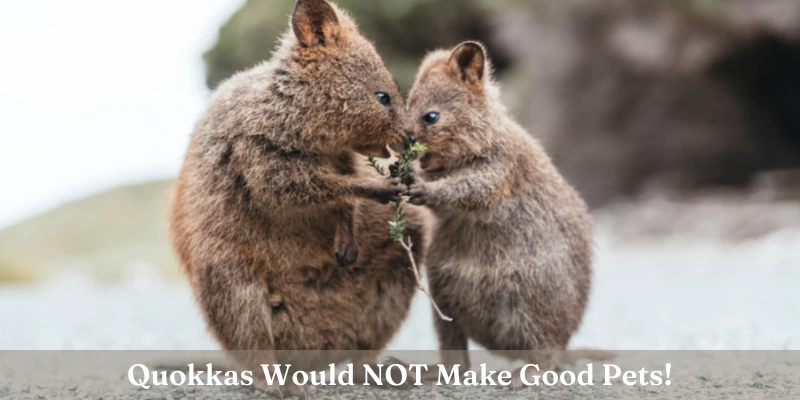
5 Reasons Quokkas WOULDN’T Make Great Pets
Below are 5 reasons why pet quokkas would NOT be good and why owning a quokka as a pet would NOT be a great idea!
1. Pet Quokkas Could Hurt You
Quokkas have sharp claws and teeth that could easily cause a cut or a gash.
While this may not harm you with serious damage, it could lead to a hefty doctor’s bill due to having to get stitches.
2. Limited Pet Quokka Services and Supplies
Since quokkas are native to Australia, it could be difficult to find the specific food and vets needed due to how scarce these animals are.
If you owned a pet quokka somewhere outside of Australia – such as in the United States – it would be difficult to meet the needs of your pet quokka.
Your typical pet food stores and vets would not have the necessary services or supplies needed for quokkas.
3. Pet Quokkas Would Be Expensive
Pet quokkas would be expensive, not only with the initial purchase due to how scarce the population is, but they would be more expensive than your usual pet in the long run because of the special diet and vet visits you would incur by having a quokka as a pet.
4. Mother Quokka and Joey Bond
Mother quokkas tend to their babies (known as joeys) for roughly 18 months after giving birth. Mothers only give birth to one joey at a time. The baby lives in its mother’s pouch for the first six months.
Then the young quokka will venture out into the world, but it will stay by Mother’s side for about another year.
It is not known how taking a baby from the mother would affect the personality and characteristics of young quokkas without having many years of testing in a domestic setting.
5. Quokkas Require Lots of Space
Pet quokkas would require a special habitat and a large space to move around in.
This space would need to be large enough, inside and outside, for quokkas to easily move around and be comfortable.
Most typical living spaces would not be accommodating enough to have quokkas as pets.
Recap
There you have it! Unfortunately, you now know that you can’t have a pet quokka.
However, that doesn’t mean you can’t help quokkas. You can symbolically adopt a quokka here.
In this article, I covered the main reasons that you can’t have a pet quokka, which included the facts that quokkas are listed as vulnerable, native to Australia, and illegal as pets in Australia – and can’t pet outside of Australia because it is illegal to export these exotic animals.
I also gave you a scenario of why pet quokkas would be popular as pets, as well as why they wouldn’t.
It is too bad that we can’t have pet quokkas because they seem like an animal that would be a perfect fit as our exotic pets if they were legal and domesticated.
That’s all I have for now! I hope this article about pet quokkas was informative and gave you the answers you seek.
